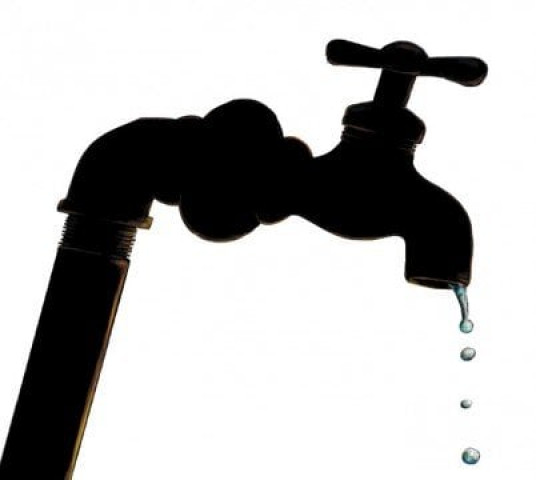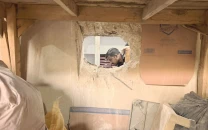World Environment Day: Parched in the 21st century
Army’s encouraging visit after ET published the plight of villagers in Tharparkar.

n the harsh desert climate, the little rain that Tharparkar receives in the monsoons, if collected in natural depressions or manmade water reservoirs, lasts hardly a few weeks. PHOTO: FILE
Lali’s hands are chafed, as this 11-year-old helps her mother pull out water from an underground well in her village by the help of ropes – water that is almost poison. As people round the globe celebrate World Environment Day, Lali’s biggest dream remains clean water, even if she has to continue to walk three hours daily to get it. Where 89% of the water is unfit for human consumption in this district of Sindh, the dream of this daughter of Tharparkar is almost too idealistic.
A lot has happened in the last two weeks. The lower house of parliament has been sworn and new beginnings are underway. Yet, much is the same for the residents of village Samoo Rind in Tharparkar. They still walk with their spines bent. They still spend hours pulling out water from wells. It is two weeks since The Express Tribune published the story of this village in Tharparkar.
With dangerously contaminated underground water which contains high levels of fluoride and is unfit for human consumption, the result is generations of people crippled and disabled, with multiple health issues.
The only alternative to underground water would be rainwater. In the harsh desert climate, the little rain that Tharparkar receives in the monsoons, if collected in natural depressions or manmade water reservoirs, lasts hardly a few weeks.
A Ray of hope
Following Express Tribune’s story, the Association for Water Applied Education & Renewable Energy (AWARE) working in the area was thrilled when a team of the Pakistan Army reached them after reading the story. “On the second day of the story, a team reached. We are hopeful that the report of the said delegation will have far-reaching effects because at a distance of 24 km from Samoo Rind there is a water supply line of the Pak Army,” shared Wali Mohammad, the Communication Officer at AWARE, after the Army visit.
“We have presented the findings of the visit to our commander along with all the facts and figures. The water samples we collected have been given for laboratory testing. Inter Services Public Relations (ISPR) has been given the report,” says an Army officer, who was part of the team who visited Samoo Rind, on condition of anonymity.
“For underground water, desalination is the best option and among the available solutions Reverse Osmosis (RO) system is the best method. AWARE mobilised resources from philanthropists and installed a RO plant in 2008. But that is operated on diesel and monthly expenses are Rs50,000 which we cannot afford. The AWARE team got earlier offers for financial support to meet the recurring cost of the RO plant but being local and conscious about repercussions, we decided against temporary solutions. Creating dependency will have its own drawbacks; we don’t want to make our community a parasite,” says Ali Akbar, Executive Director, AWARE.
“Our first recommendation is simple and practical. At a distance of 11 km from the village, there is an electric supply line. If the village gets electricity, the RO plant can become functional,” says the Army officer.
And where is the Sindh Government?
“Pakistan People’s Party (PPP) is in a very strong position in Tharparkar now. If they want they can fix this within no time,” says Amar Guriro, President of National Council of Environmental Journalists (NCEJ) and a son of the Tharparkar soil himself. “Jobs and economic security, on the list of priorities, comes after water. This is a basic human right,” adds an impassioned Guriro.
At least some 70 villages in Tharparkar suffer at the hands of unsafe water-borne diseases, and governments come and go, as do promises.
Till the going of this story into press, repeated attempts were made to get a statement from the media department of the Chief Minister House, but no timely response was received.
Published in The Express Tribune, June 5th, 2013.



















COMMENTS
Comments are moderated and generally will be posted if they are on-topic and not abusive.
For more information, please see our Comments FAQ